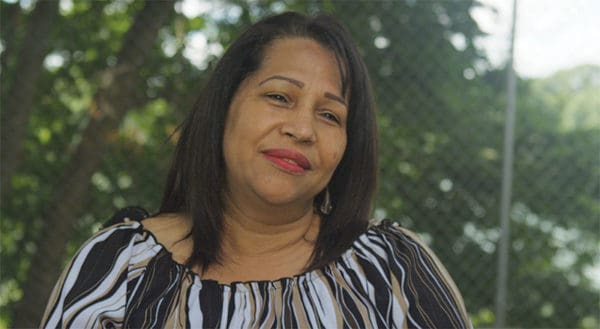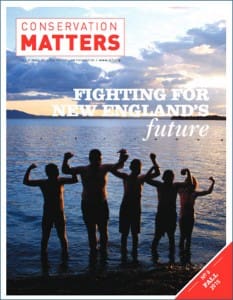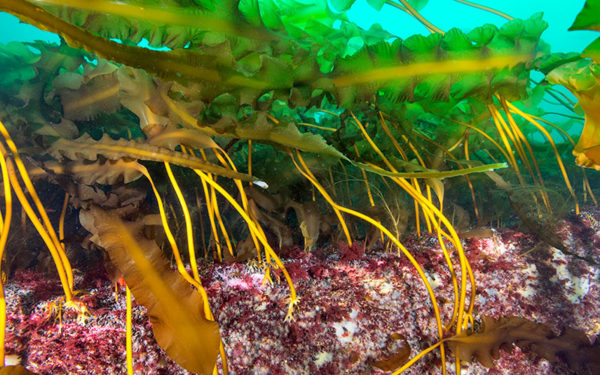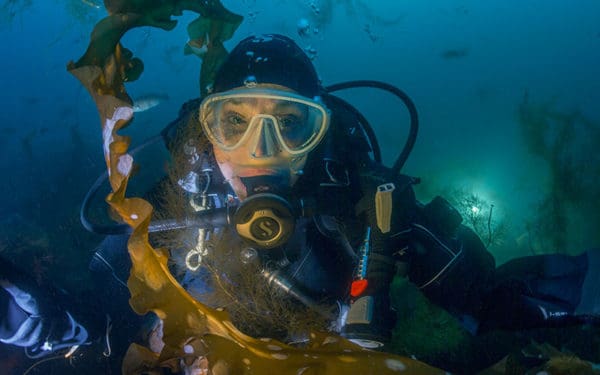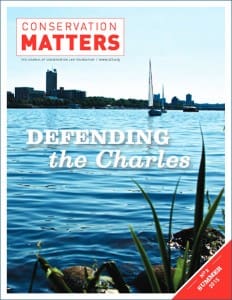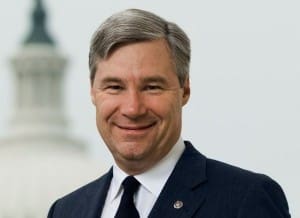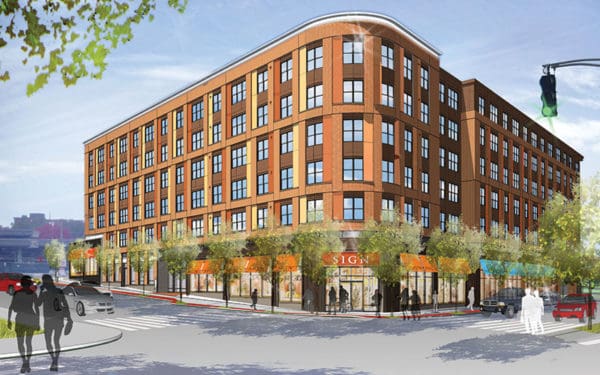Mar 05, 2016
When Ana Quezada and her husband first bought their South Providence home 10 years ago, they were thrilled about the large pond bordering their backyard. It was only after they moved in that they learned that Mashapaug Pond is so contaminated from industrial and stormwater pollution that it’s been closed to fishing and swimming for decades.
Jan 28, 2016
Rhode Island is a destination for people from around the world, who travel here to explore our history, sail our waters, and enjoy our beaches. But for us, it’s home – a place CLF has pledged to protect with all the passion and skill we have.
Oct 08, 2015
Fighting for New England’s Future: CLF’s New President, Brad Campbell, Takes the Reins… Windward Progress: Offshore Wind in Rhode Island… Why I Give: Justin Boyan… Five Questions For: Dr. Sylvia Earle
Sep 05, 2015
Beneath the waves are seascapes as diverse and breathtaking as anything found on land. Yet only a fraction of our ocean is protected worldwide. We make the case for protecting vital seascapes like Cashes Ledge, so that our ocean can survive and thrive for generations to come.
Sep 05, 2015
In August 2015, conservationist and oceanographer Dr. Sylvia Earle launched a dive expedition to Cashes Ledge, the underwater mountain range 80 miles off the coast of Portland. We asked Dr. Earle about the need to protect Cashes Ledge and why she has designated it one of her “Hope Spots.”
Sep 05, 2015
Developing clean energy resources is a vital part of our response to climate change. In summer 2015, after years of smart and effective advocacy, CLF marked a watershed moment in U.S. history when Deepwater Wind began construction on the nation’s first offshore wind farm in Rhode Island’s Block Island Sound.
Jul 08, 2015
Defending the Charles: Closing the Clean Water Gap and Making All Polluters Pay… Progress Report: Childhood Lead Poisoning in New Hampshire… Why I Give: CLF Massachusetts’ Board Member Chi Ho Sham… Five Questions For: Rhode Island Senator Sheldon Whitehouse
Jun 05, 2015
Rhode Island senator, Sheldon Whitehouse, delivers a weekly “Time to Wake Up Speech” on the floor to compel his colleagues to address the climate crisis. Whitehouse tells us what compels him to give these speeches, and what role environmental advocacy can play in the fight against climate change.
Apr 05, 2015
Today, record numbers of Americans suffer from chronic diseases such as diabetes and asthma, which are strongly influenced by their neighborhood and environmental conditions. At the same time, traditional sources of public funding for development are drying up, making the vision of a healthy community harder to realize.
Apr 05, 2015
Cars, trucks, and buses are the largest and fastest-growing contributor to greenhouse gas emissions. Additionally, states are struggling to maintain public transit infrastructure, highways, and bridges in the face of scant funding and skyrocketing costs. These problems, though far-reaching, have solutions, though finding them will take investment, political will, and tenacity.
